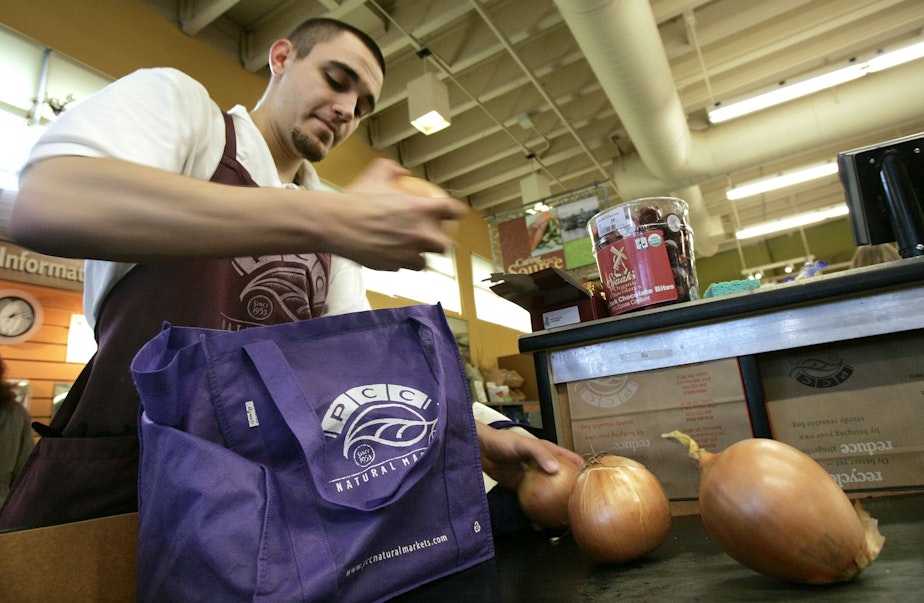Hazard pay is the latest casualty of the 'waning pandemic phase'

Seattle grocery store workers will soon see less money in their paychecks after the Seattle City Council voted to no longer require hazard pay.
The move is part of a broader trend in Seattle — even as Covid continues to spread in the community, the city is moving away from pandemic-era policies.
In January 2021, the council unanimously passed a requirement for grocery stores to pay their employees an extra $4 an hour. That extra wage, called hazard pay, was meant to make up for risks employees were taking during the pandemic.
The rationale was that grocery workers risked being exposed to Covid by working in the public to provide food, which is a necessity.
The Seattle City Council ended the hazard pay policy with a 5-2 vote this week. Along with this vote, the city council chose to make a cap on delivery fees by services like Uber Eats and DoorDash, another policy related to Covid, permanent.
Sarah Grace Taylor of the Seattle Times said that Mayor Bruce Harrell has been advocating for ending many Covid policies since he took office at the beginning of this year.
"He's looking to get things back to whatever version of normal he can as quickly as he can," Taylor said, "starting with labor, lifting mask requirements in city buildings, ending eviction moratorium, ending hazard pay this week."
Sponsored
Sarah Grace Taylor spoke to Soundside about the end of hazard pay and how it relates to other policies connected to the pandemic.





